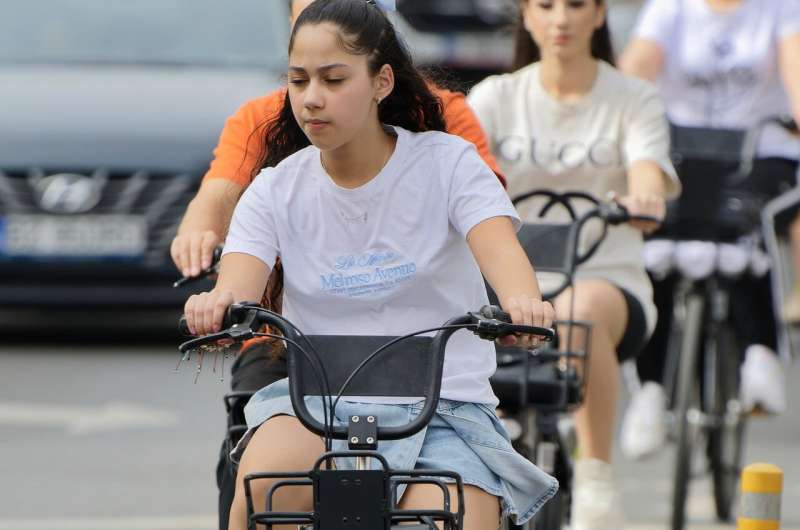
The Bike Bus movement has emerged as a powerful tool to promote road safety, sustainability and community. According to a global survey carried out by the Institute of Environmental Science and Technology of the Universitat Autònoma de Barcelona (ICTA-UAB), the phenomenon has gained momentum globally in recent years, with more than 470 Bike Bus routes worldwide, transporting 32,000 children to school every week.
A Bike Bus is a group of children who—accompanied by their family members—ride their bikes to school along a route with predetermined stops and schedules. The practice, which began in 1998 in Brecht, Belgium, became popular in 2021 when an initiative from Barcelona went viral on the internet. The report, prepared by researchers from the BCN City Lab group at ICTA-UAB, analyzes existing Bike Bus initiatives through interviews with promoters of 93 Bike Bus routes in eight countries, collecting their characteristics, diversity, motivations, impacts and sustainability over time.
The results show that 94% of participants see Bike Bus as a form of activism, highlighting its role in promoting systemic changes in transport and demanding a more bike-friendly city for children. Safety is the main concern, with 92% of respondents feeling unsafe to cycle to school without the protection of the group. The lack of adequate infrastructure and heavy traffic in their cities are some of the reasons.
The survey shows that 67% of the participants are young children, with an average age of 8 years. Although the routes are sometimes overcrowded, the groups consist of about 17 people (on average 10 children and 7 adults). On average, the routes are organized once a week and cover a distance of 1 to 2 kilometers on the road, which takes 20 minutes.
Regarding gender distribution, girls comprise 47% of the children’s participants. The insecurity expressed by the interviewees regarding their usual routes to school explains why 37% of Bike Bus participants are parents accompanying their children. They feel that the cycle paths, where they exist, are too narrow, require advanced skill to navigate, and intersections are unsafe because car drivers do not expect bikes, especially smaller children’s bikes. Similarly, more than half of respondents felt that bicycle parking was an obstacle to participating in this initiative.
“What began as a means to shelter children from traffic has evolved into a celebration of cycling and a way of demanding more child-friendly cities. They have proved to be an effective way of increasing the visibility of cyclists on the streets and fostering a sense of community,” explains Jordi Honey-Rosés, researcher at ICTA-UAB and head of the study.
Although the survey results show a significant increase in the use of Bike Bus, they also highlight future challenges in terms of its long-term viability. Currently, most efforts are driven and funded by individual leaders, raising questions about their institutional sustainability in the long term. The study therefore highlights the need for greater government and financial support to formally integrate Bike Bus into school transport systems. However, researchers warn of the delicate balance between institutional support and the active participation of parents and cycling activist groups.
“The Bike Bus is more than a means of transport; it is a statement of principle about the importance of sustainable mobility and the safety of our children, and we hope that this study will serve as a call to action for communities and governments worldwide to support and expand this transformative initiative,” concludes Honey-Rosés.
More information:
A Global Survey of Bike Bus Initiatives, (2024)
Citation:
Bike Bus gains supporters as a way to promote sustainable and safe mobility (2024, April 18)
retrieved 18 April 2024
from https://phys.org/news/2024-04-bike-bus-gains-sustainable-safe.html
This document is subject to copyright. Apart from any fair dealing for the purpose of private study or research, no
part may be reproduced without the written permission. The content is provided for information purposes only.







